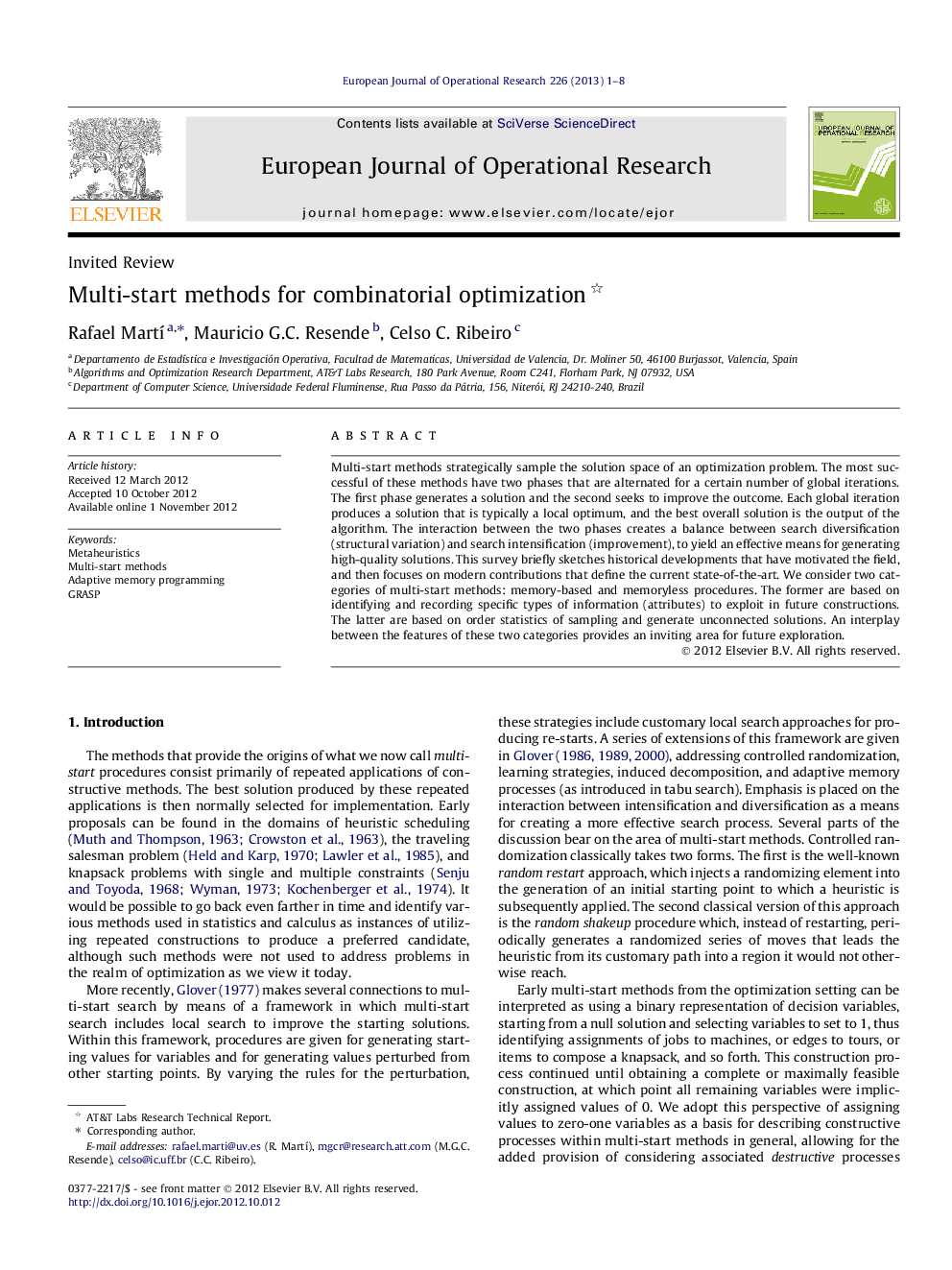| Article ID | Journal | Published Year | Pages | File Type |
|---|---|---|---|---|
| 478321 | European Journal of Operational Research | 2013 | 8 Pages |
Multi-start methods strategically sample the solution space of an optimization problem. The most successful of these methods have two phases that are alternated for a certain number of global iterations. The first phase generates a solution and the second seeks to improve the outcome. Each global iteration produces a solution that is typically a local optimum, and the best overall solution is the output of the algorithm. The interaction between the two phases creates a balance between search diversification (structural variation) and search intensification (improvement), to yield an effective means for generating high-quality solutions. This survey briefly sketches historical developments that have motivated the field, and then focuses on modern contributions that define the current state-of-the-art. We consider two categories of multi-start methods: memory-based and memoryless procedures. The former are based on identifying and recording specific types of information (attributes) to exploit in future constructions. The latter are based on order statistics of sampling and generate unconnected solutions. An interplay between the features of these two categories provides an inviting area for future exploration.
► Description of the origins of the multi-start methodology. ► Revision of the main publications, including the characteristics of “early methods”. ► Classification in terms of their use of memory. ► Focus on combinatorial optimization. ► Description of adaptive memory programming and GRASP methods.
